As your kids grow, so do their personalities, interests, and needs for personal space. Sharing a room can be a challenge, especially if your children are different ages or genders. But you don’t have to knock down walls or build new rooms. With a little creativity, you can divide a shared bedroom to give each child their own cozy corner of independence.
Below are 22 fresh and practical ways to create divided bedroom spaces that encourage growth, privacy, and style—without major renovations.
1. Use Bookshelves as Dividers
Tall bookshelves are a stylish and functional way to split a room. They offer storage and a clear visual barrier while still keeping the space light and open.
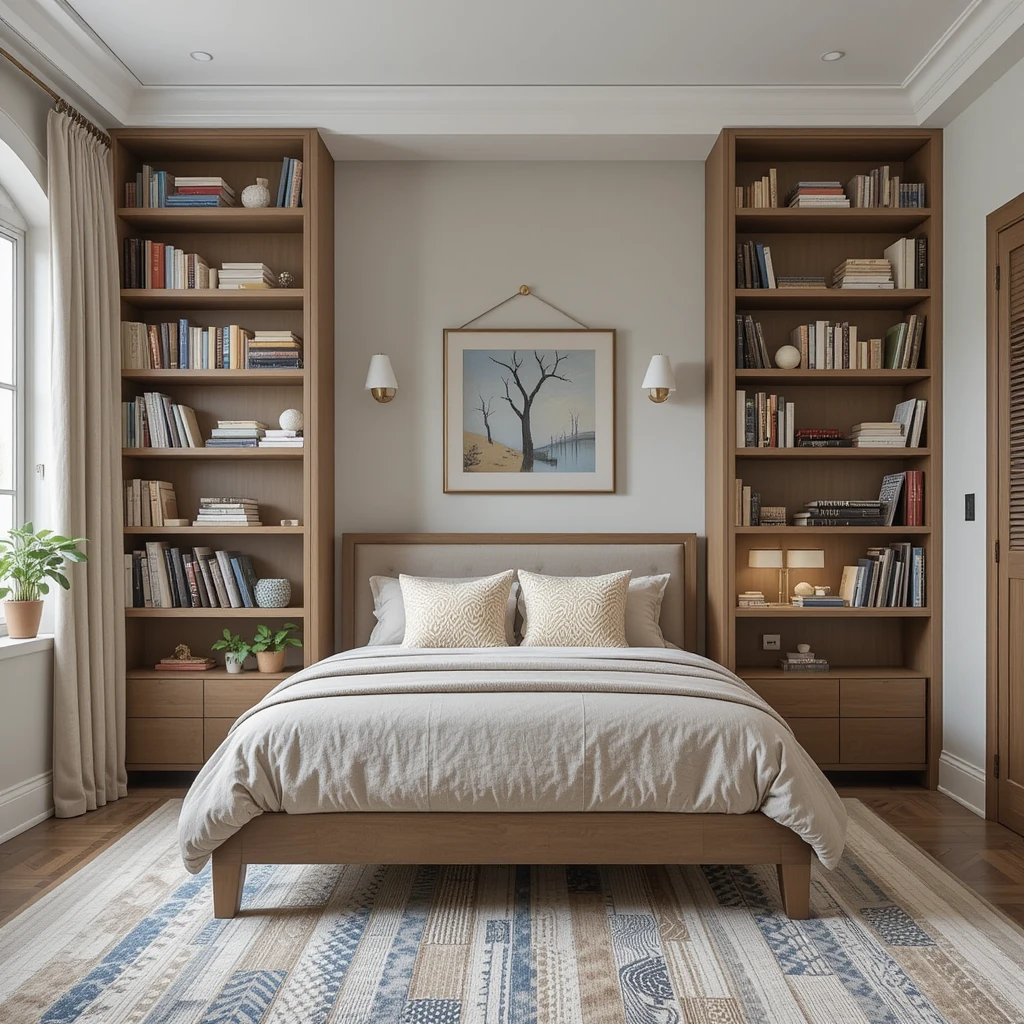
2. Install a Curtain Partition
Hang floor-to-ceiling curtains to create instant separation. It’s a budget-friendly solution that adds flexibility—you can open it during playtime and close it during quiet hours.
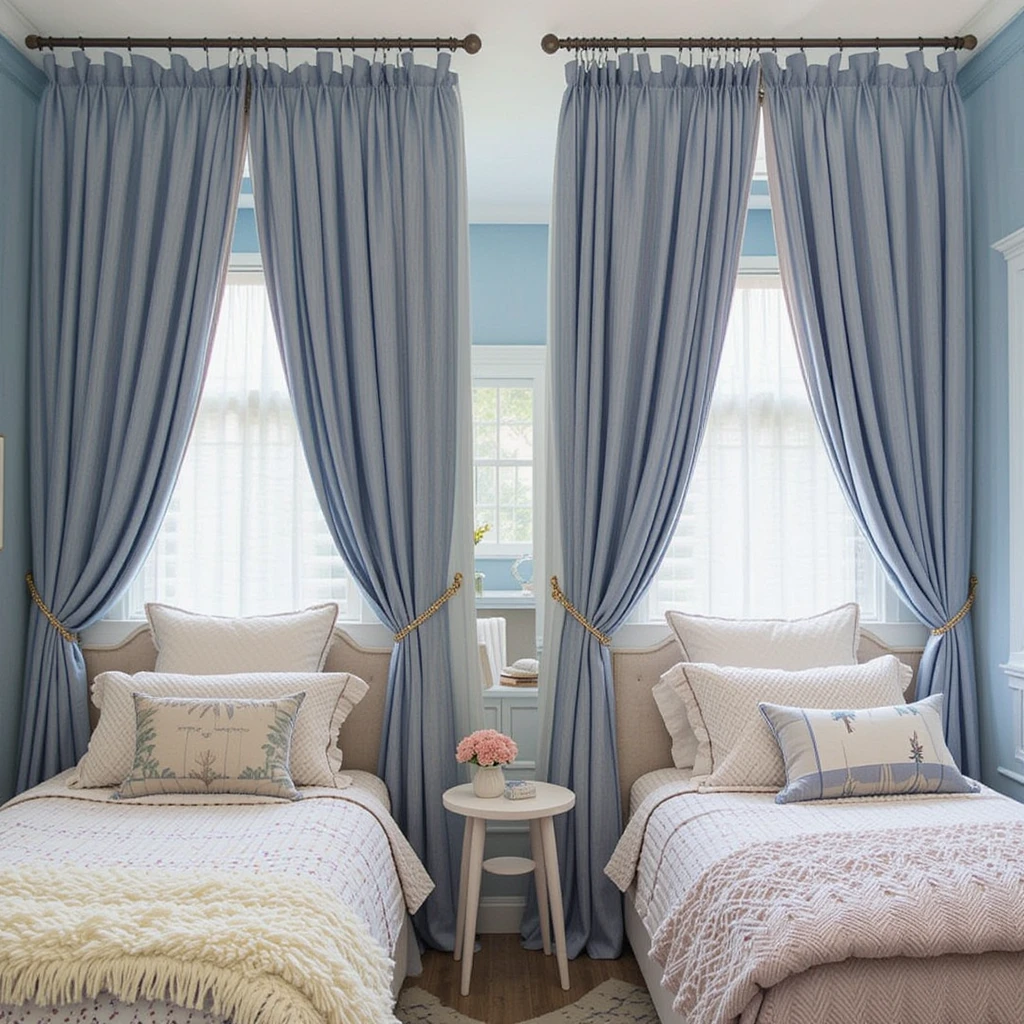
3. Build a Loft Bed with a Partition Wall
Loft beds free up floor space while giving you room to install a divider or desk underneath, allowing each child to have their own zone.
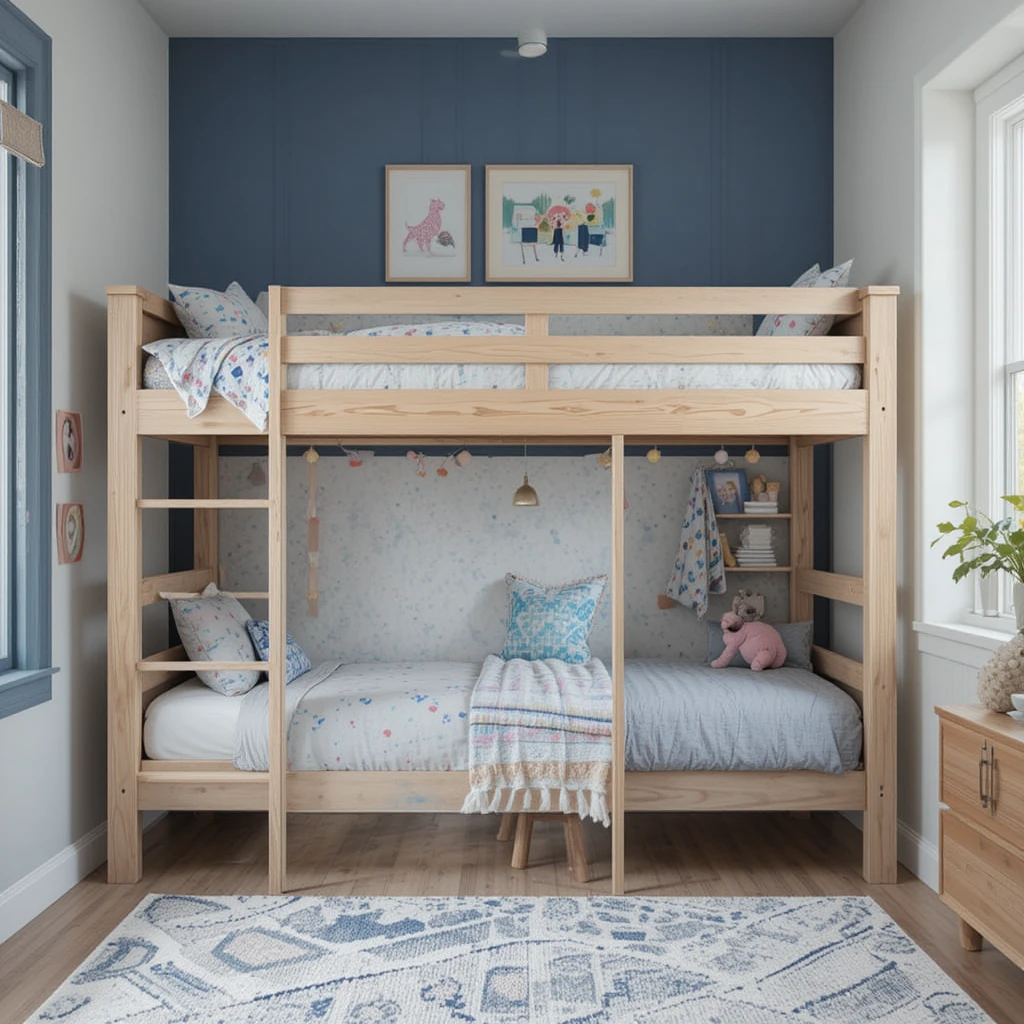
4. Paint Each Side Differently
Color is a powerful tool. Use contrasting or complementary wall colors to define each child’s area and express their personality.
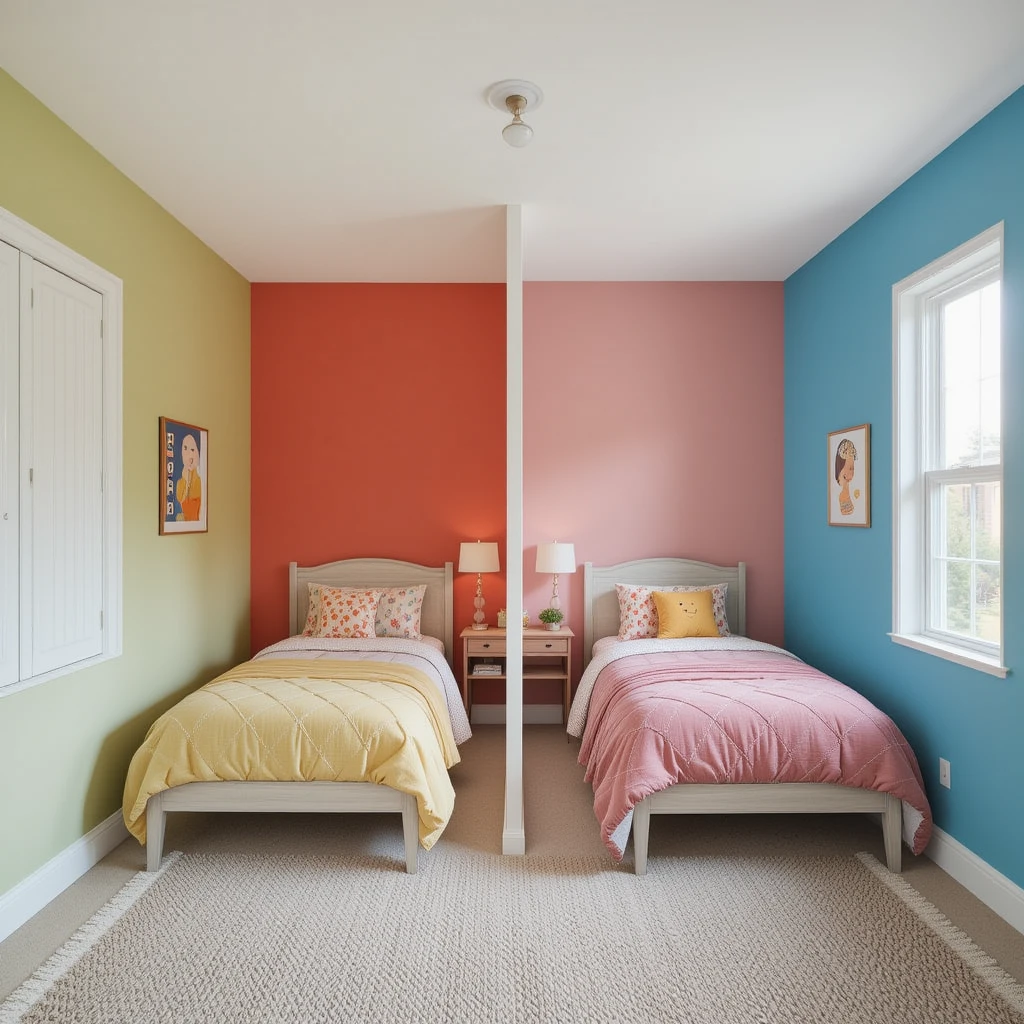
5. Create a Slide-Out Panel Wall
Custom-built sliding partitions are sleek and modern. These panels can be tucked away or pulled out when kids need privacy or quiet time.
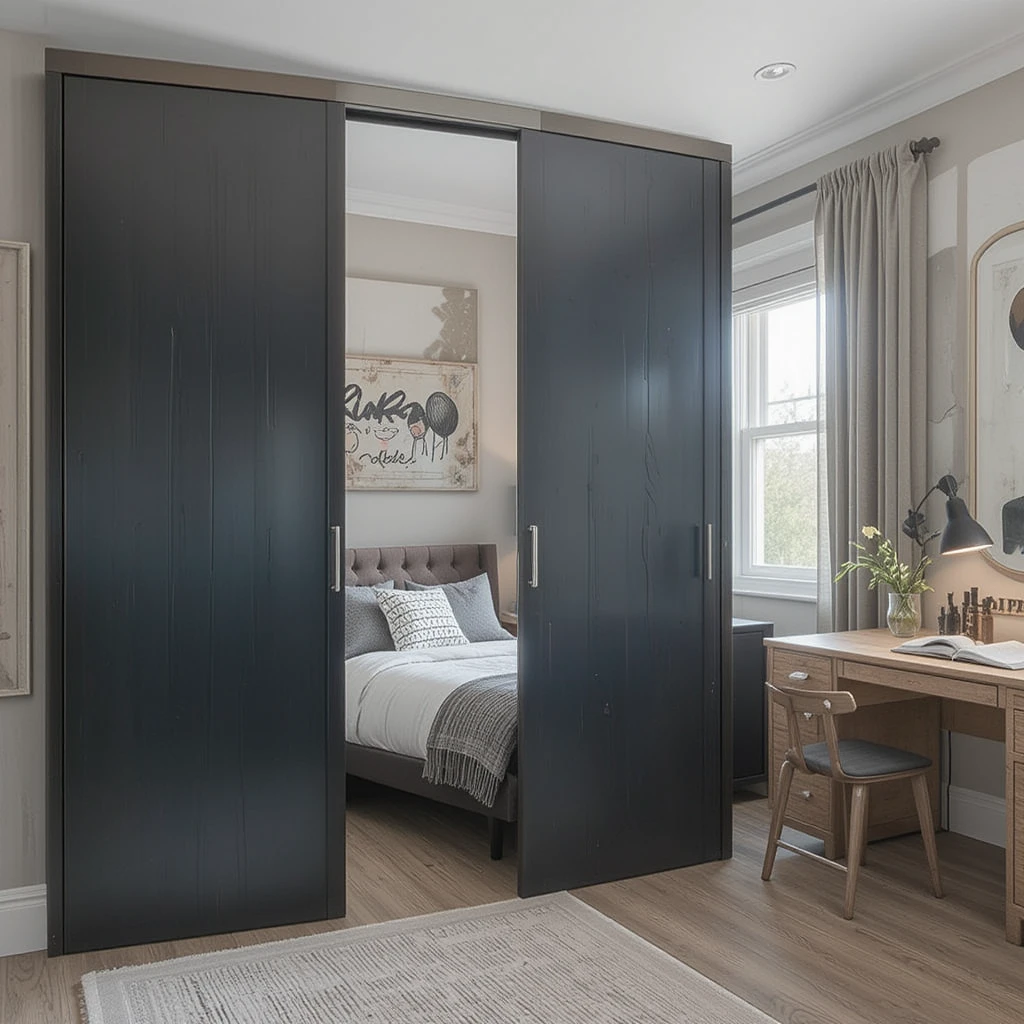
6. Add a Folding Screen
A folding room divider is an easy, no-installation-needed solution. Kids can move it when needed, and it doubles as a decorative piece.
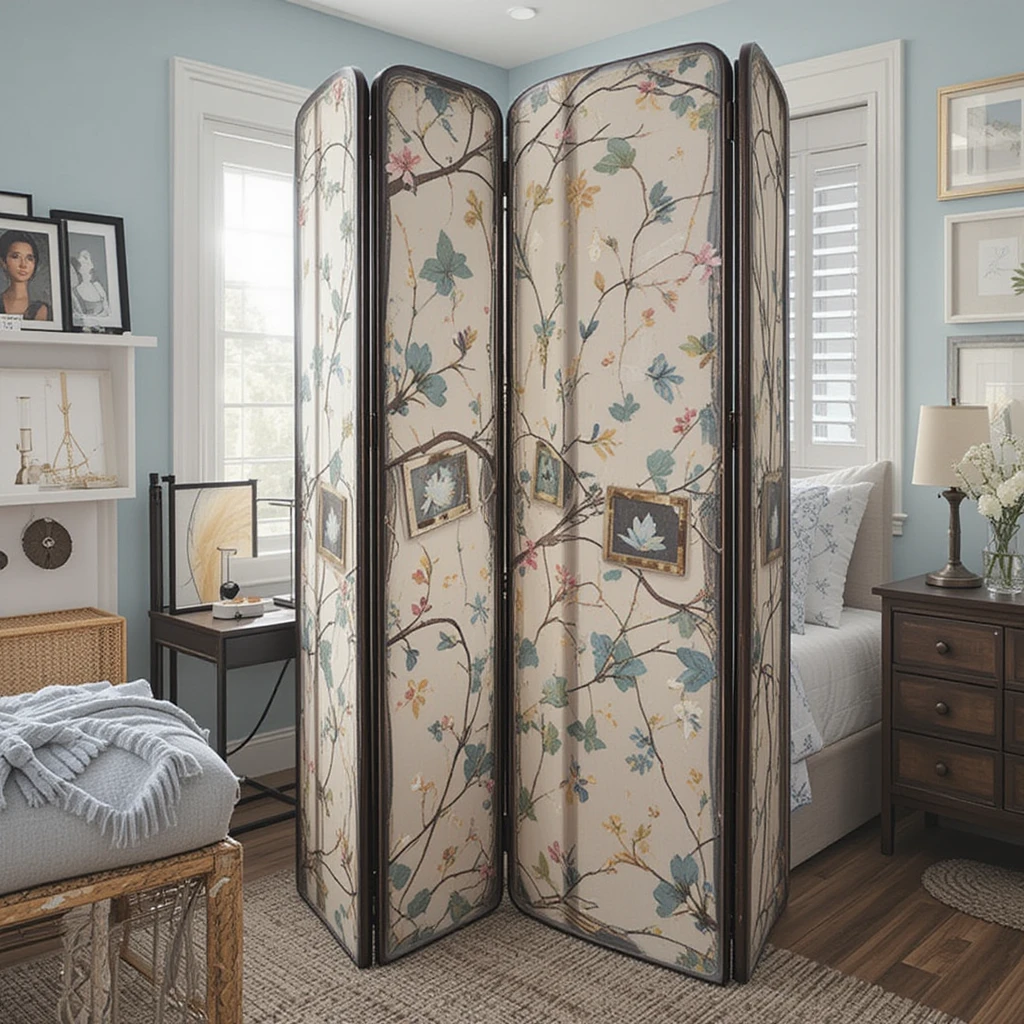
7. Use Area Rugs to Define Zones
Distinct rugs for each side subtly separate the space while making it cozy. Choose designs that reflect each child’s unique taste.
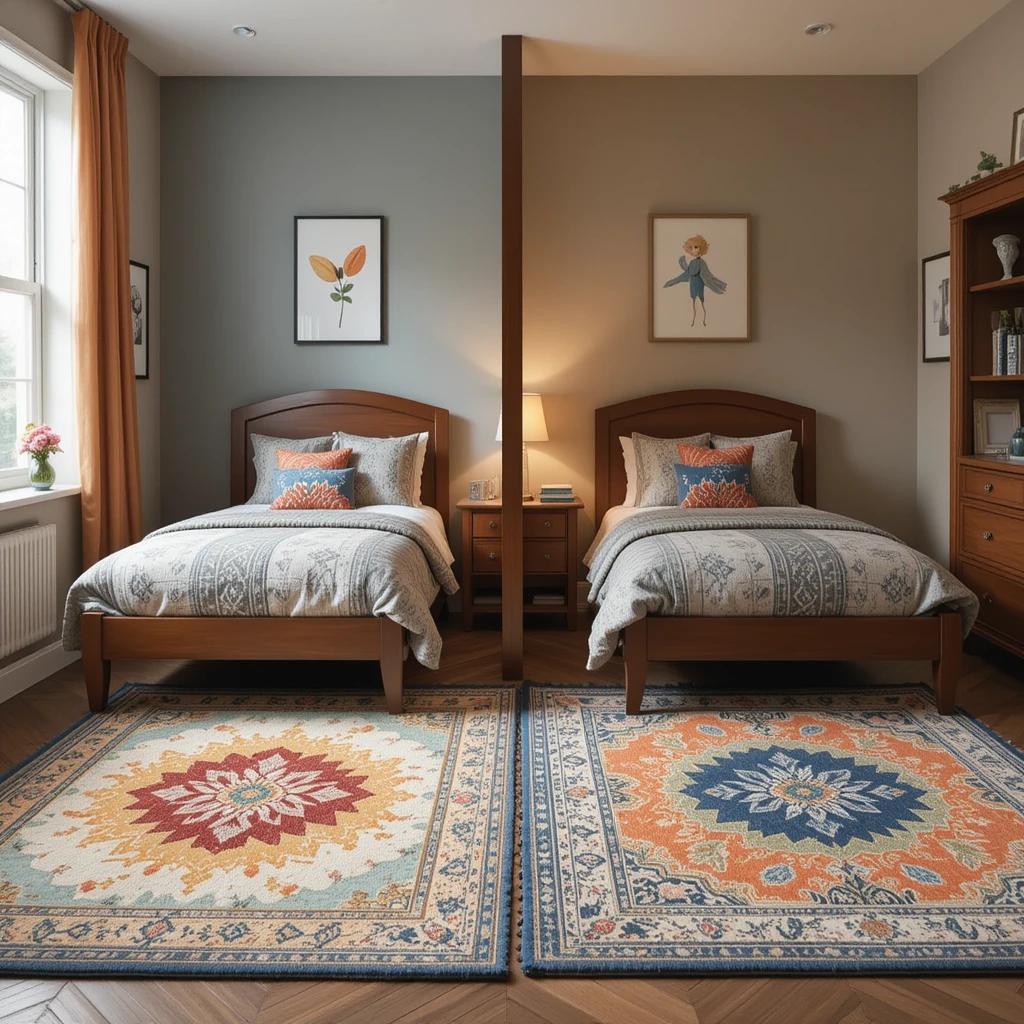
8. Customize Bunk Beds with Curtains
Add privacy curtains around each bunk to give kids a cozy, individual nook. It’s like having a mini room within a room.
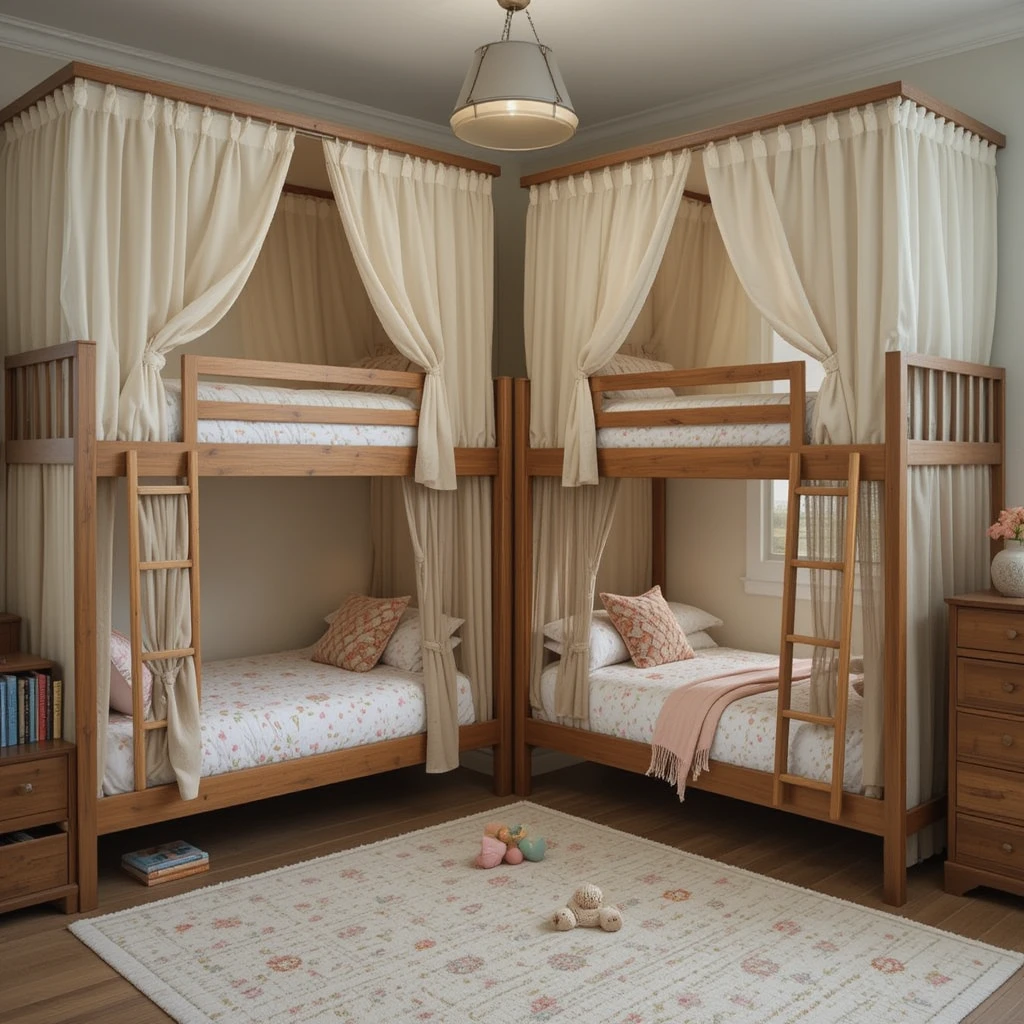
9. Add Individual Wall Murals
Personalized murals behind each child’s bed can mark ownership and set a creative vibe that reflects their interests.
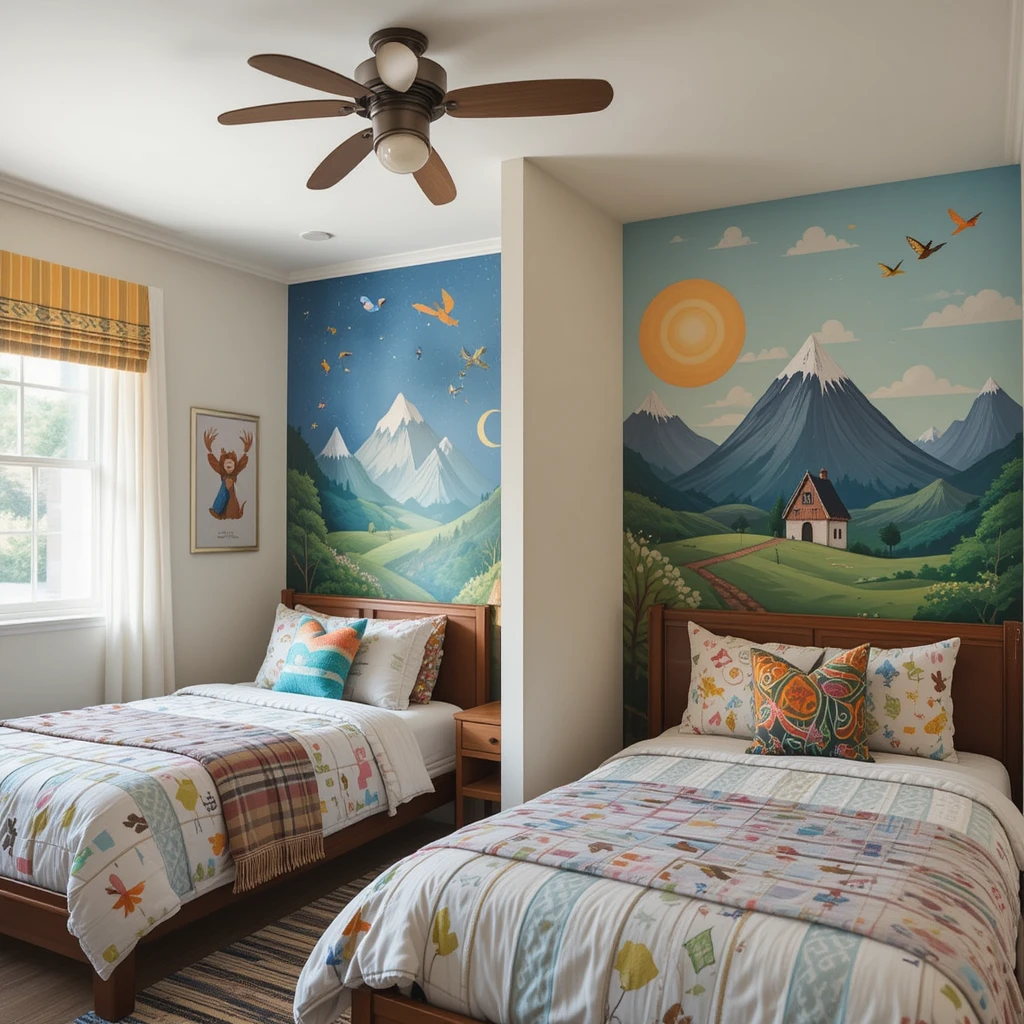
10. Build Half-Walls for Separation
If you’re handy, build a low or half-wall to section the space. It creates a physical barrier without making the room feel closed off.
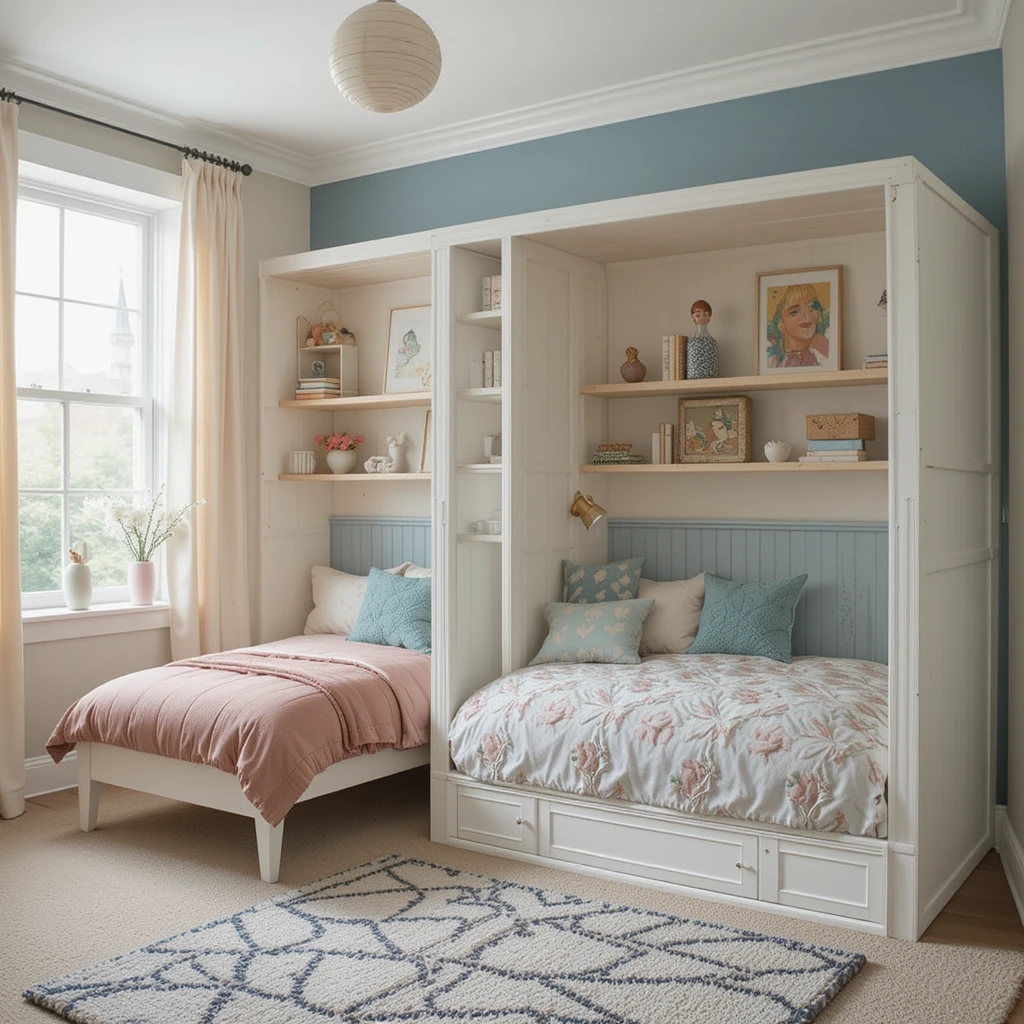
11. Use a Pegboard Divider
A pegboard divider not only separates the room but also offers storage for school supplies, art, or toys—keeping the space organized.
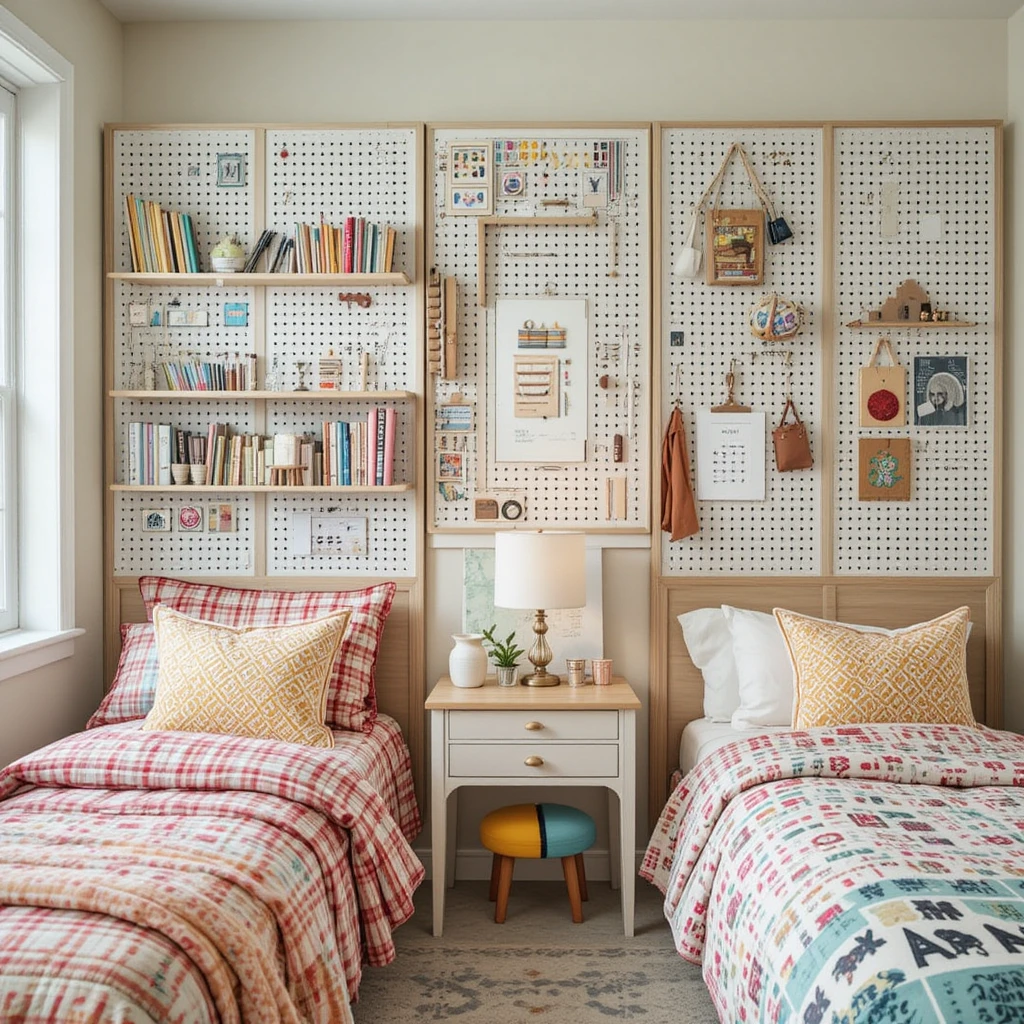
12. Design Dual Study Corners
Give each child their own mini workstation in separate corners. This promotes productivity and gives them personal space to focus.
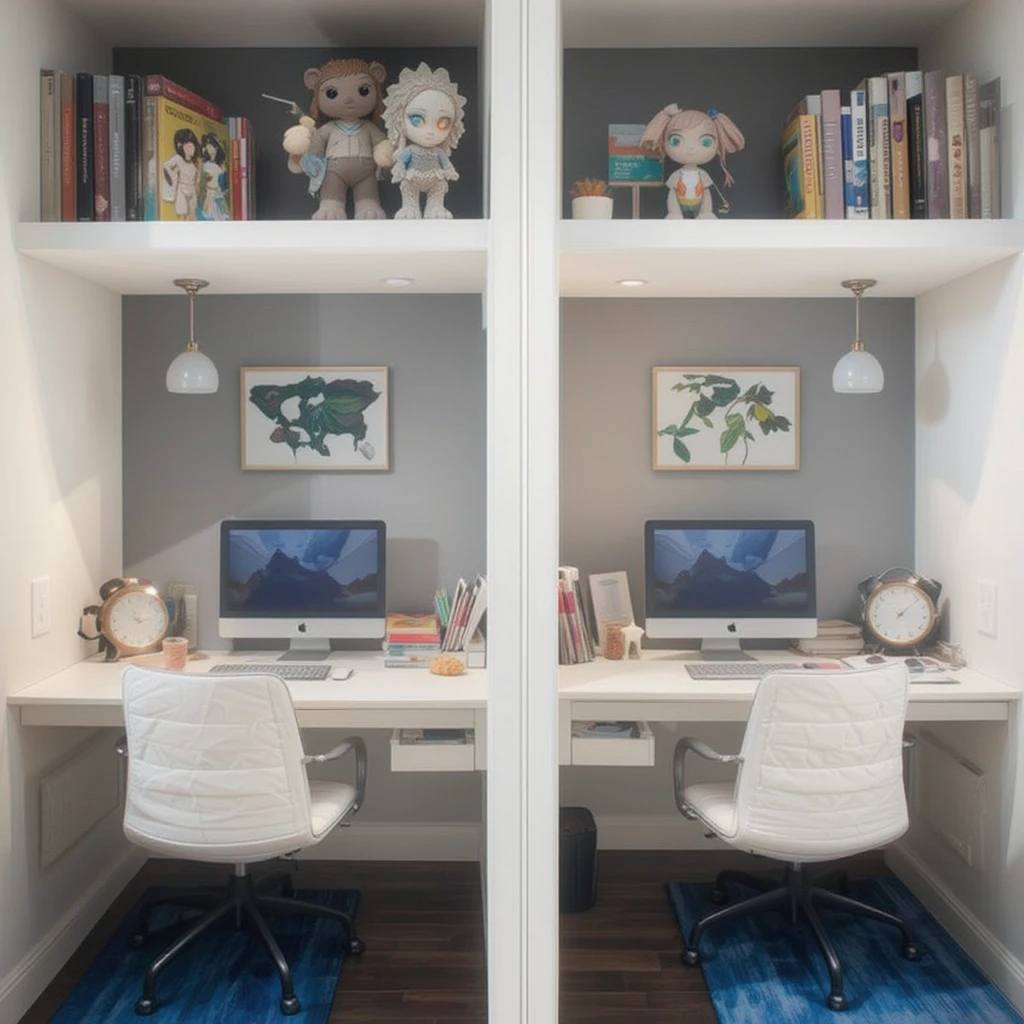
13. Choose Twin Daybeds
Daybeds can be positioned back-to-back or along opposite walls, acting as both seating and sleep areas, while creating an open pathway in between.
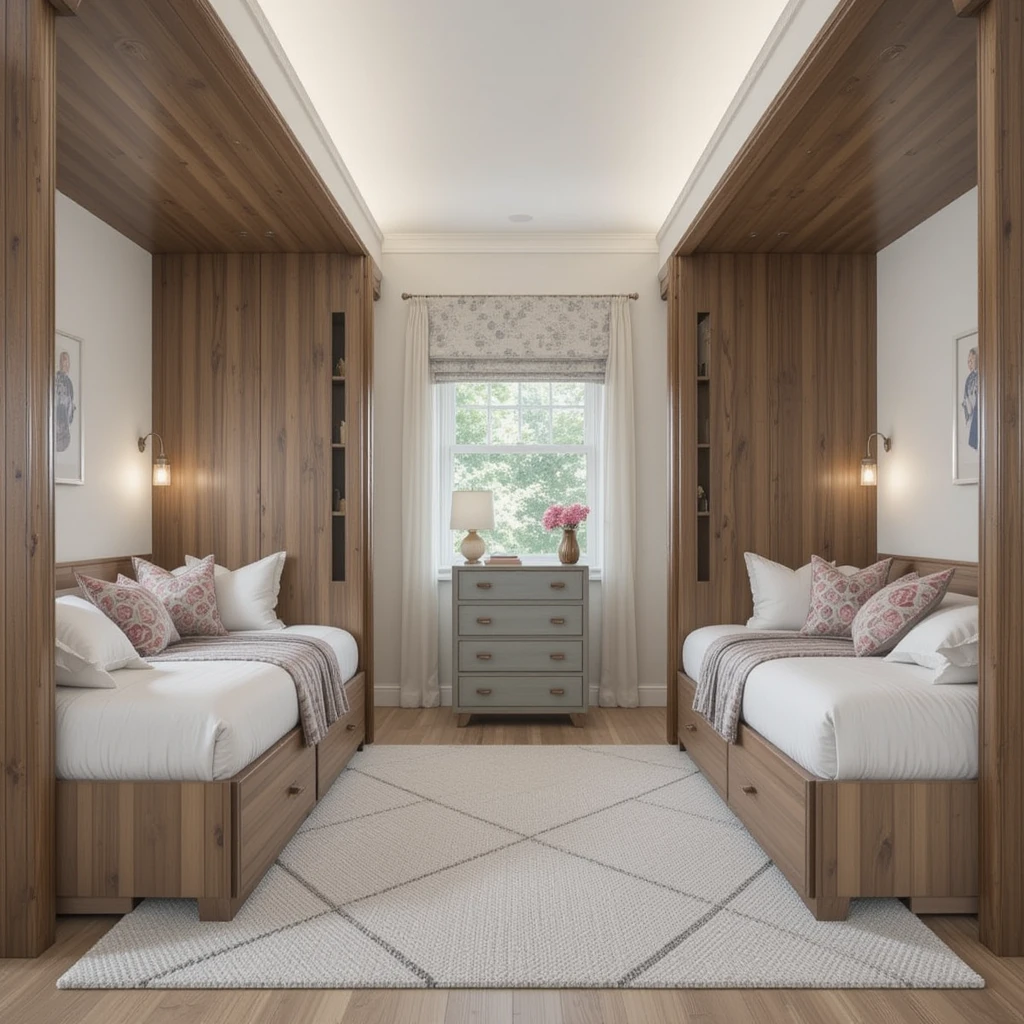
14. Hang String Lights on Each Side
String lights add a warm glow and personal ambiance to each space. Use different colors or shapes to match each child’s style.
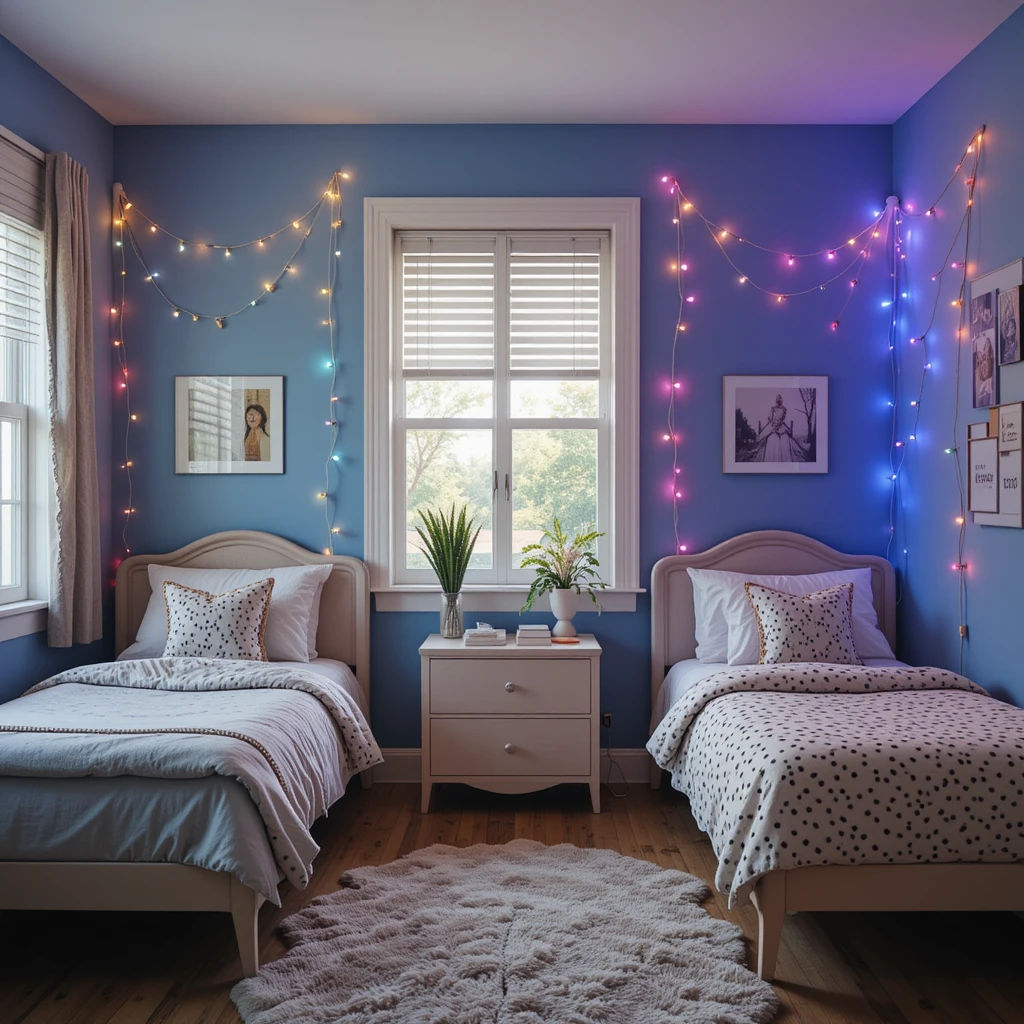
15. Use Large Plants as Natural Barriers
Tall, leafy indoor plants like fiddle-leaf figs or bamboo can create a soft, organic divide between two zones.
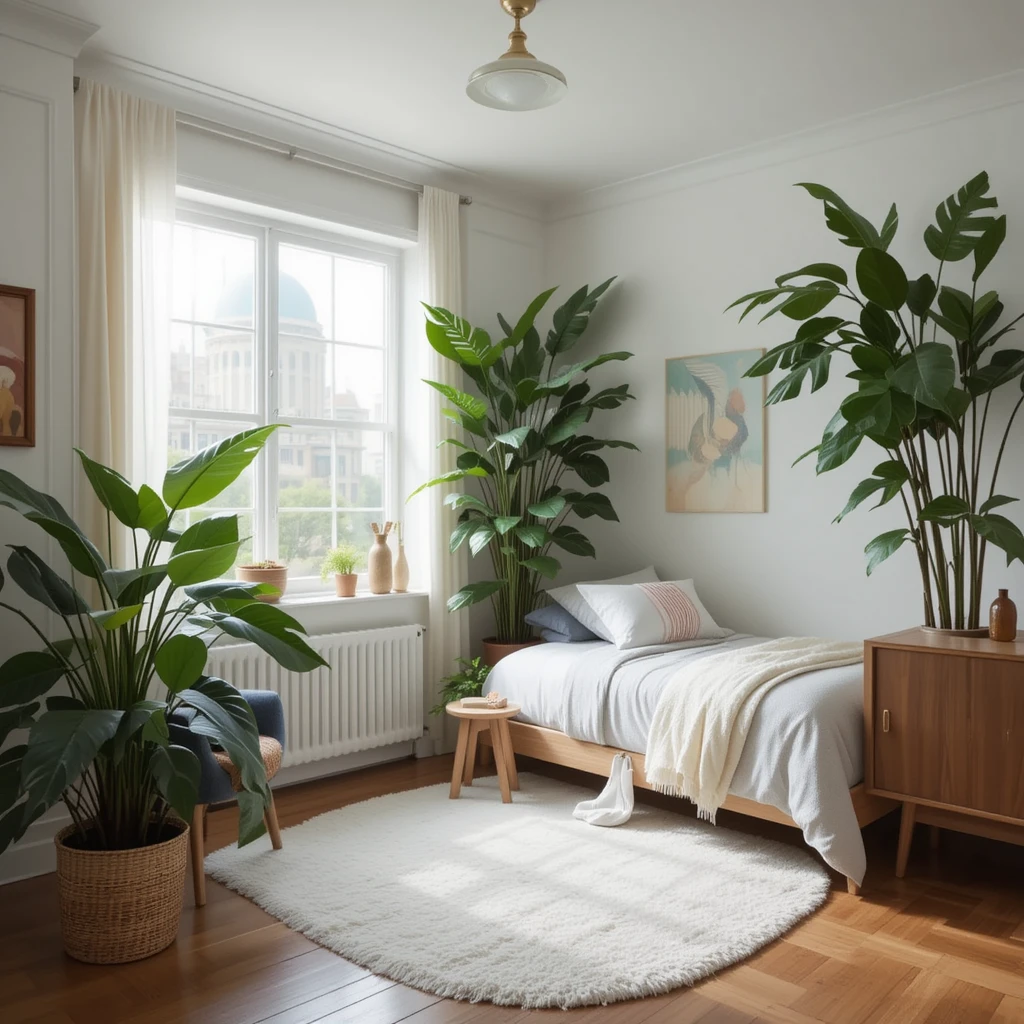
16. Install Back-to-Back Desks
A back-to-back desk setup creates clear separation for homework or crafts while maximizing shared space efficiently.
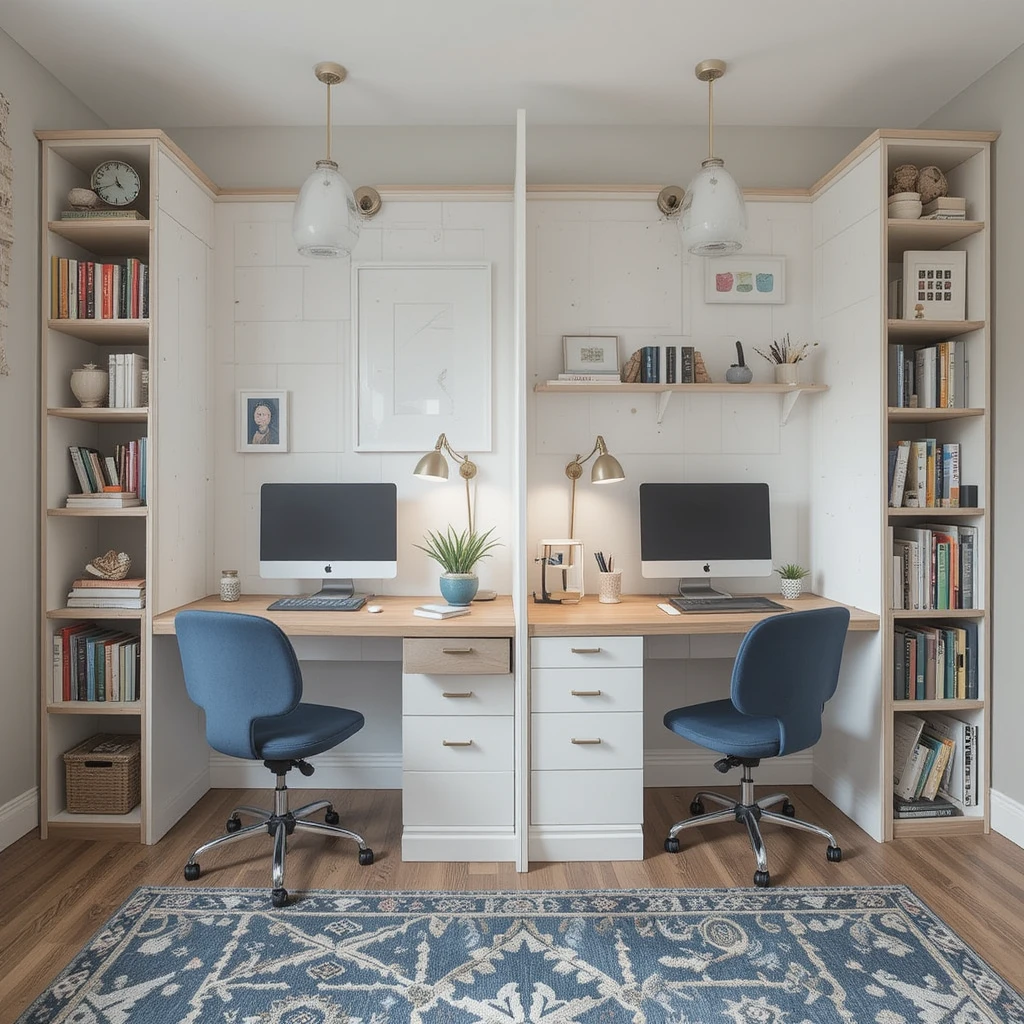
17. Create a Theme Per Side
Let each child pick their theme—sports vs. space, jungle vs. mermaids. This builds excitement and pride in their area.
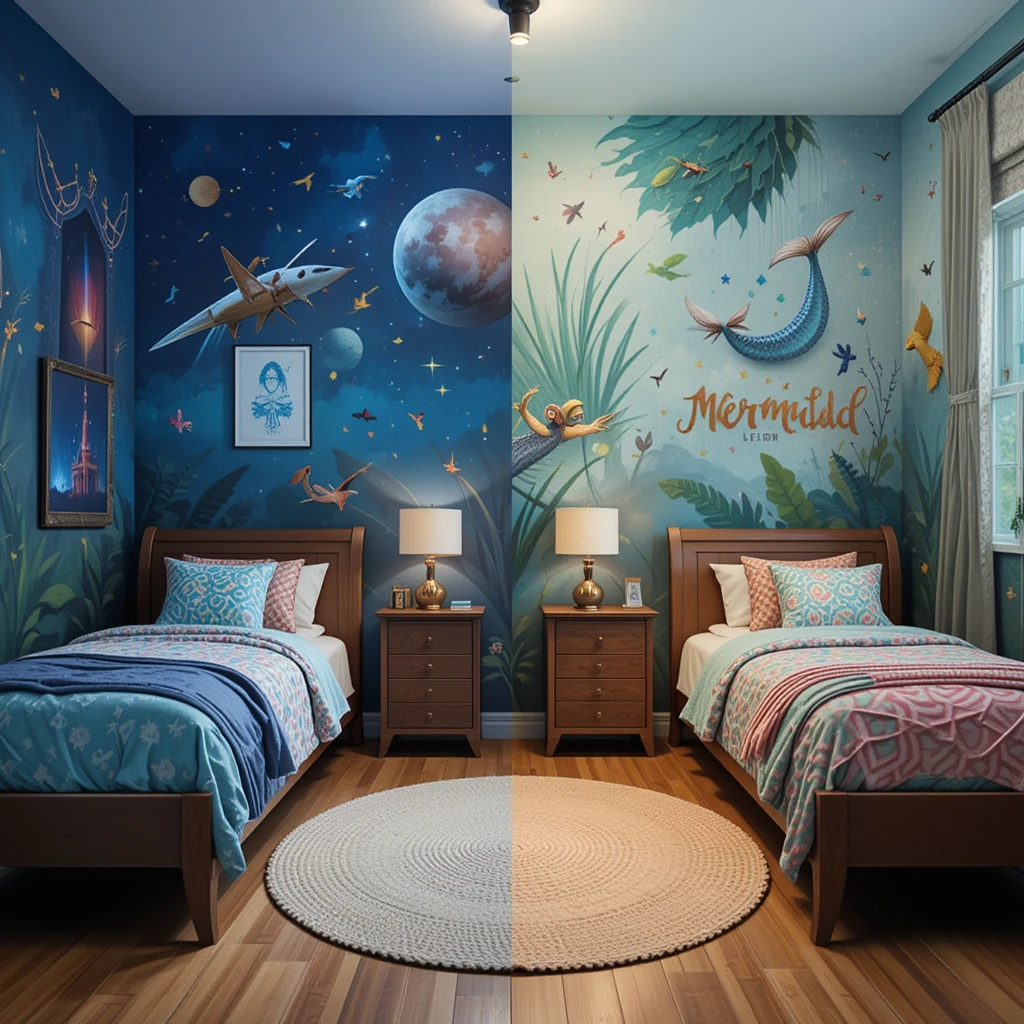
18. Use a Low Dresser as a Divider
Place a low dresser in the center of the room. It offers extra storage and visually breaks up the space without blocking light.
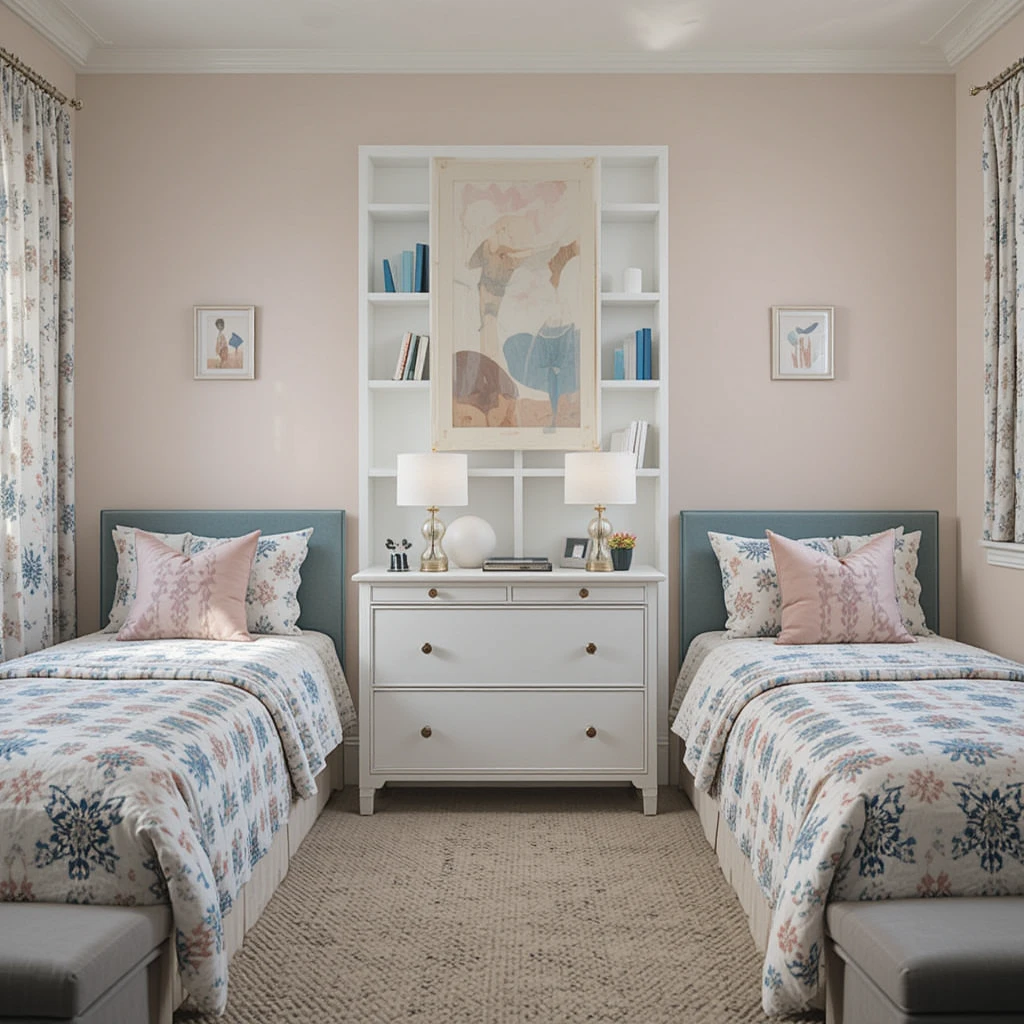
19. Try a Tent or Teepee Space
Give each child their own tent-style nook. It’s fun, whimsical, and provides a cozy place to read, rest, or daydream.
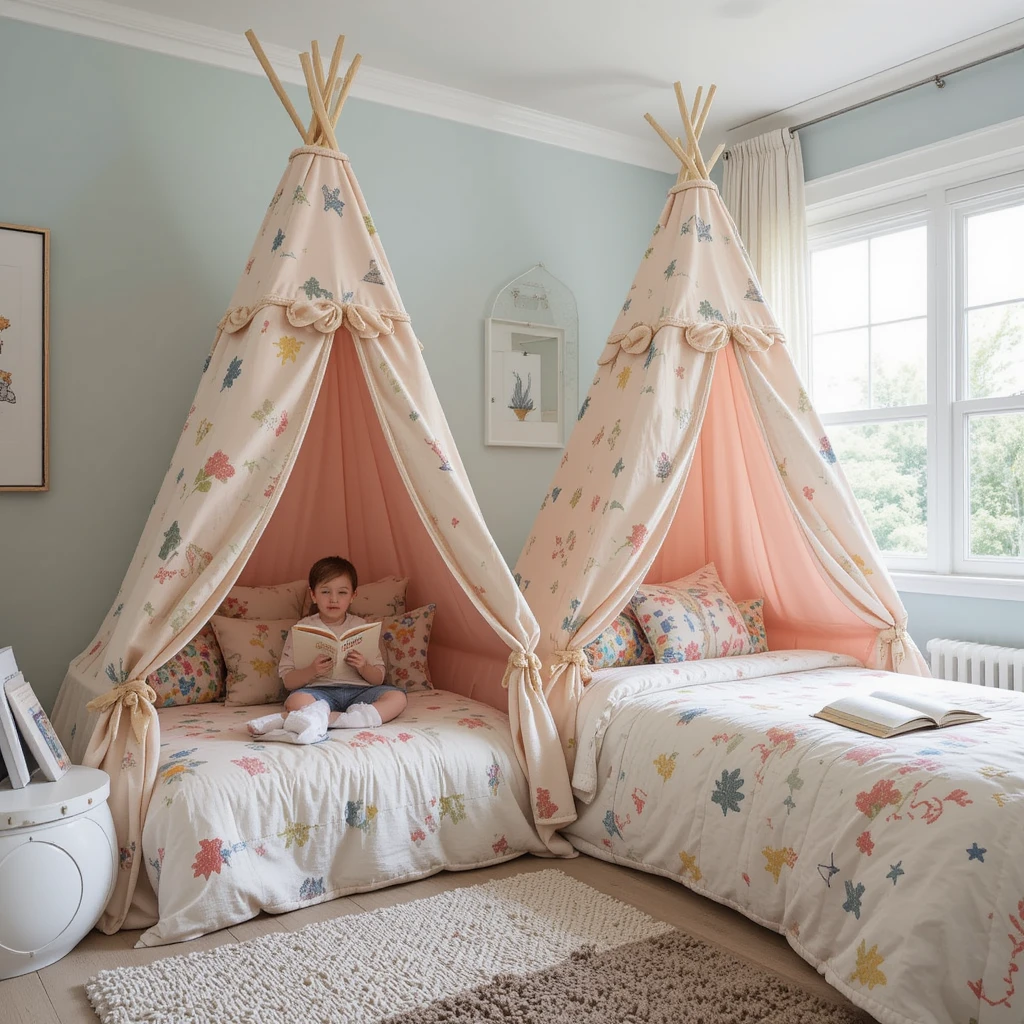
20. Install Ceiling-Hung Room Dividers
Lightweight panels or hanging textiles can be suspended from the ceiling for an artistic and functional separation.
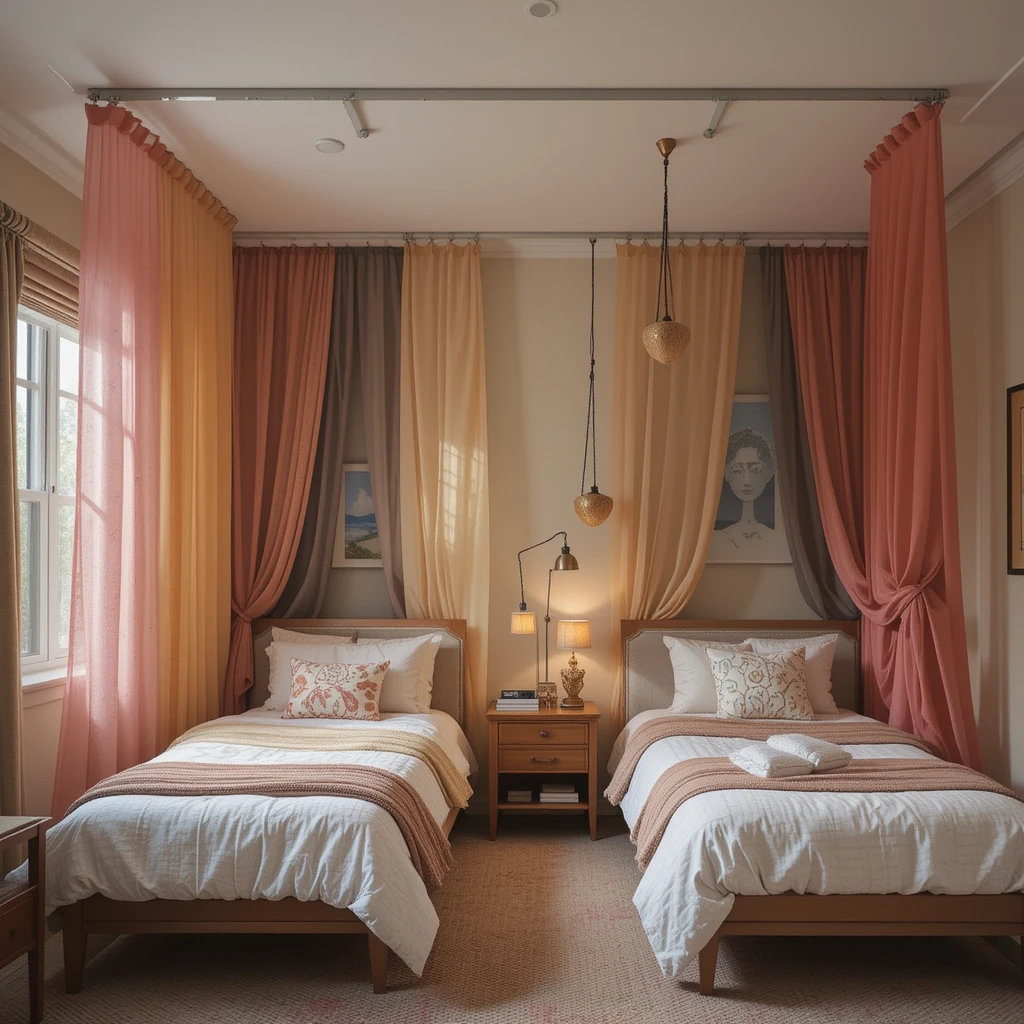
21. Mount Shelving Units on the Wall as Dividers
Install open wall shelving units that stretch vertically. These act as a divider and storage solution, keeping the floor open and tidy.
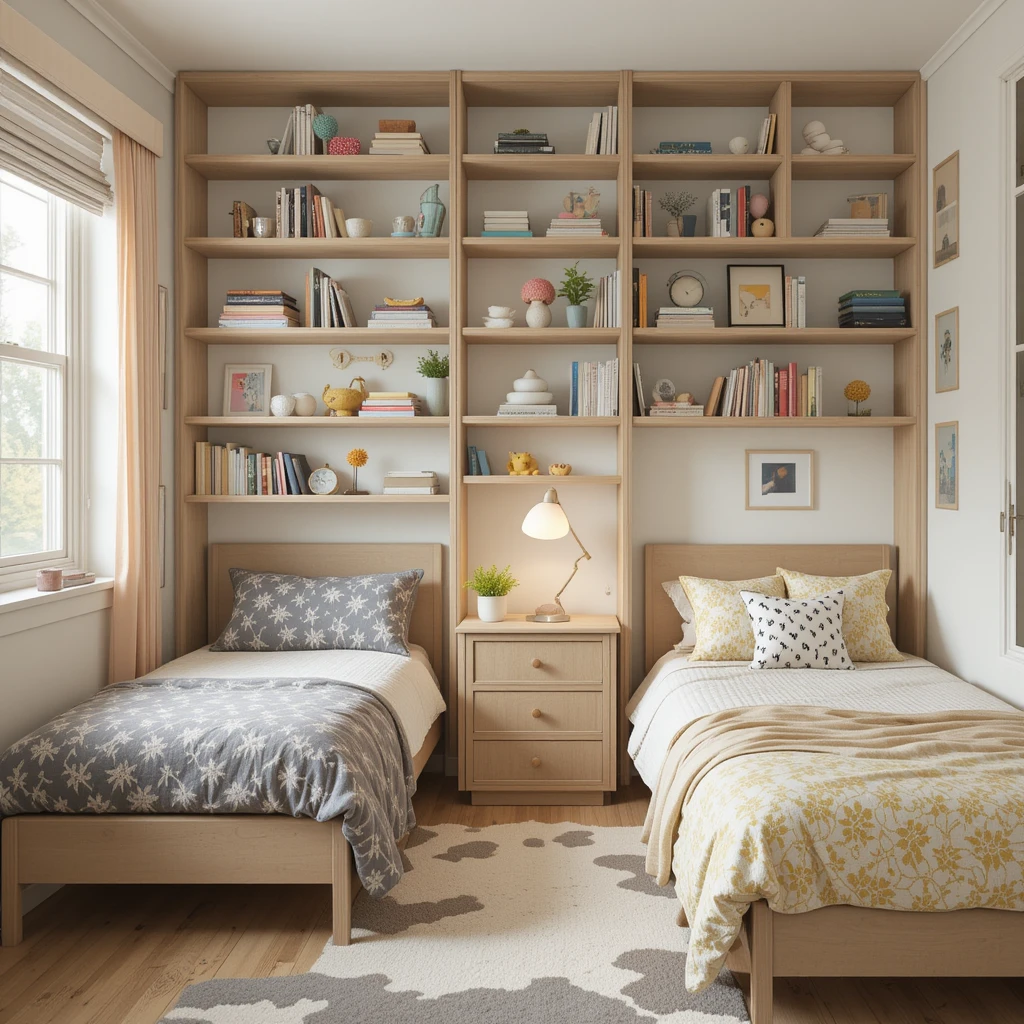
22. Use Furniture Placement Strategically
Sometimes just rearranging the furniture can make a big difference. Place beds, desks, and dressers back-to-back or in L-shapes to create natural boundaries.
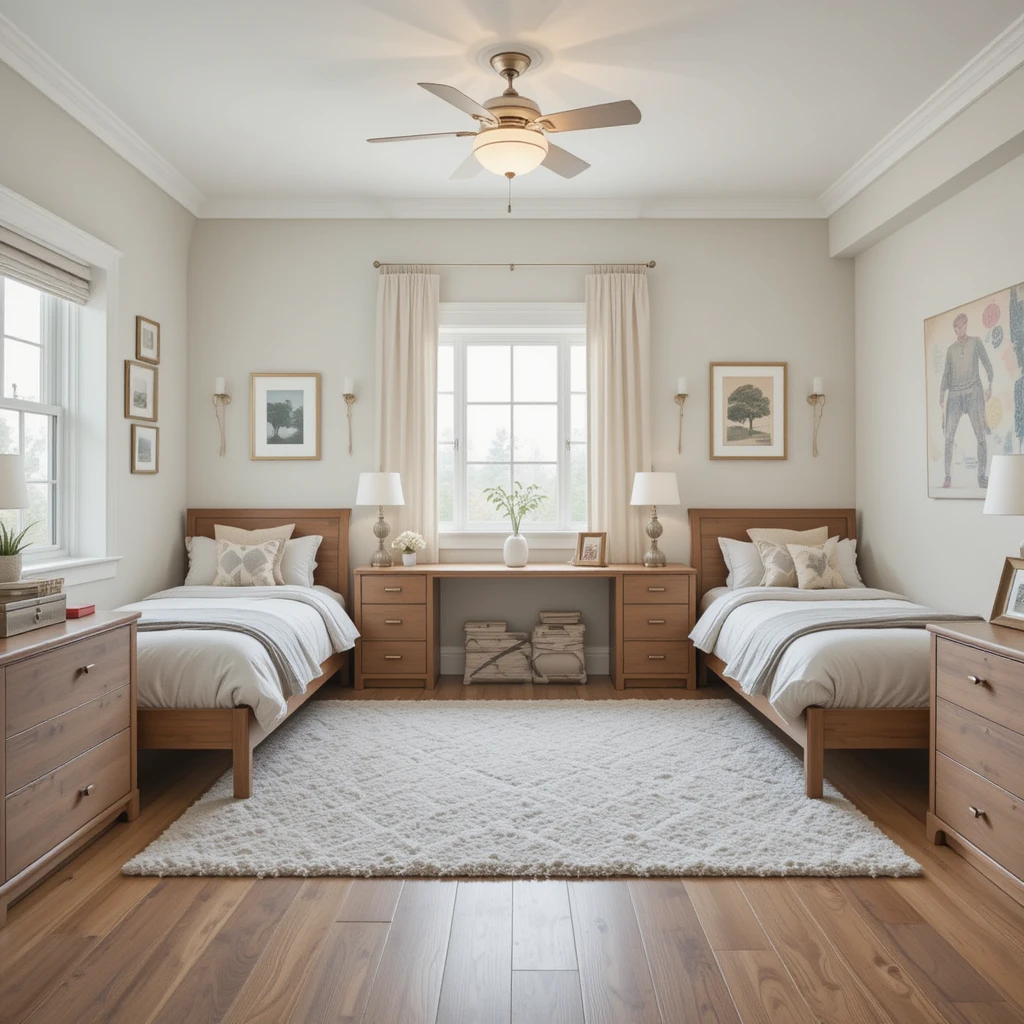
Final Thoughts
Creating divided bedrooms for growing kids is all about balance—giving them space to express themselves while encouraging connection. These 22 creative and functional ideas prove that you don’t need to remodel your home to achieve peace, privacy, and personality in a shared room. Whether you’re working with a tight budget or a spacious floor plan, there’s a solution here for every family.
Let your kids have a say in the design process—empowering them makes the space truly theirs.